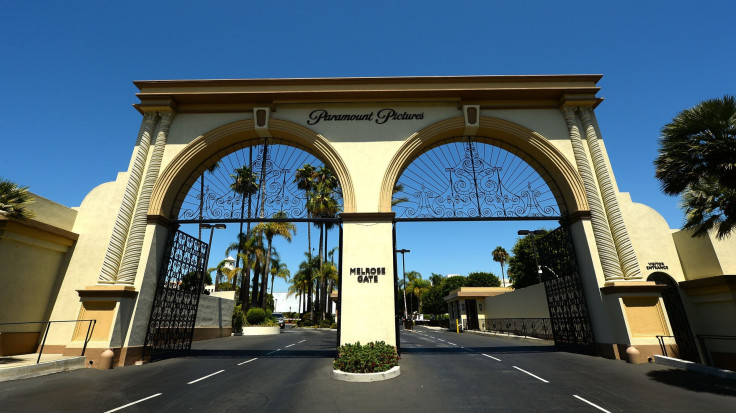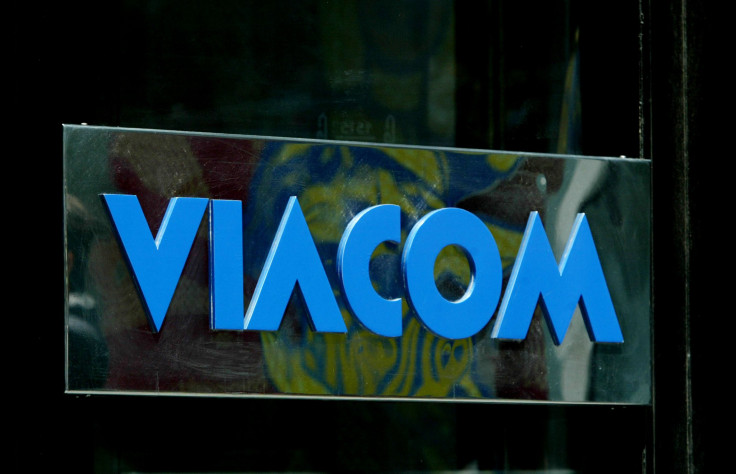Viacom’s Red Check: Why A Chinese Buyer Makes The Most Sense For Paramount Pictures

LOS ANGELES — Viacom Chief Executive Officer Philippe Dauman is hawking a minority stake in the entertainment giant’s cinematic crown jewel, Paramount Pictures, to anyone who is willing to listen. But we should probably expect the eventual check to come in a red envelope.
A Chinese buyer is both the obvious and best choice for the struggling Viacom, whose stock has been battered by Wall Street over the past two years as its cable networks — including MTV and Comedy Central — have been dragged down by a declining subscriber base and ad revenue. Viacom’s profitability is heavily dependent on the performance of those networks, which target young TV viewers who are increasingly cutting the cord (or not signing up for cable in the first place) and instead are consuming content online.
But despite lagging behind peers Universal Pictures and 20th Century Fox, the enduring strength of the movie industry (the U.S. box office hit an all-time high of more than $11 billion last year) may make Paramount, which can be overlooked by shareholders, Viacom’s best opportunity to generate the spark it needs.
Bringing in a partner would not only provide a cash boost, but the right partner could grow the studio on the global stage and make Viacom as a whole less dependent on the fickle viewing habits of MTV fans. One obvious and frequently named Paramount suitor is the Chinese e-commerce giant Alibaba Group, which set up an Los Angeles office for its Alibaba Pictures subsidiary last summer and has been sniffing around for further opportunities to get involved in Hollywood, according to several industry insiders International Business Times has spoken with.

Last year, Alibaba Pictures invested in Paramount’s “Mission Impossible: Rogue Nation,” which made nearly $136 million in China. And taking a minority stake in Paramount wouldn’t seem to threaten the primacy of its Alibaba Pictures outpost, which has been adding and seeking out industry talent.
An Alibaba investment in Paramount would also fit in with the flurry of deals announced between Chinese companies and Hollywood studios over the last 12 months, the latest being Perfect World Pictures’ $250 million investment in Universal.
Dalian Wanda Group, headed by China’s richest man, Wang Jianlin — a business rival of Alibaba Executive Chairman Jack Ma — bought “Jurassic World” production company Legendary Entertainment for $3.5 billion earlier this year. It was an amount widely regarded by entertainment attorneys as rich, but understandable, given Wanda’s worldwide ambitions and cash hoard. And that could mean Paramount’s best hope for a good price is likelier to come from China than a private equity or other purely financial buyer.
From Paramount’s perspective, China could offer a lot more than simply a deep-pocketed buyer who might be willing to pay a premium. Viacom clearly needs a growth engine, and China’s theatrical box office might be one of the entertainment world’s most robust. It grew 49 percent just last year, hitting nearly $6.8 billion — still short of the $11 billion American theaters reeled in last year, but worlds away from the $1.5 billion China’s box office made in 2010.
A Chinese partner should also help more of Paramount’s films slide into the exclusive group of 34 foreign movies permitted by law to enter the country each year and get a piece of that ever-expanding pie.
In return, a Chinese buyer would get access to the profits earned by Paramount’s films elsewhere. Bennett Pozil, an executive vice president at East West Bank, which has financed several U.S.-China film deals, told IBT earlier this year that Chinese firms are also interested in getting a piece of movies that play well in other territories. Big studio movies are a truly global product, which should be a nice selling point to Chinese companies like Alibaba that face a domestic market that grows murkier by the day. “Mission Impossible” was a smash hit in China, but it also made $10 million in Russia, $11 million in Australia and India and $12 million in Mexico.
In a statement released by Alibaba and Paramount last year after agreeing on the “Mission Impossible” partnership, Paramount Vice Chairman Rob Moore mentioned a Los Angeles meeting the previous fall between Alibaba and Paramount’s decision makers, where they talked about ways the two companies could work together, leading to Alibaba’s investment in that film.
“We hope today’s announcement is the first of many collaborations between us,” Moore said in the statement.
Viacom’s shareholders might be hoping for the same.
© Copyright IBTimes 2024. All rights reserved.





















